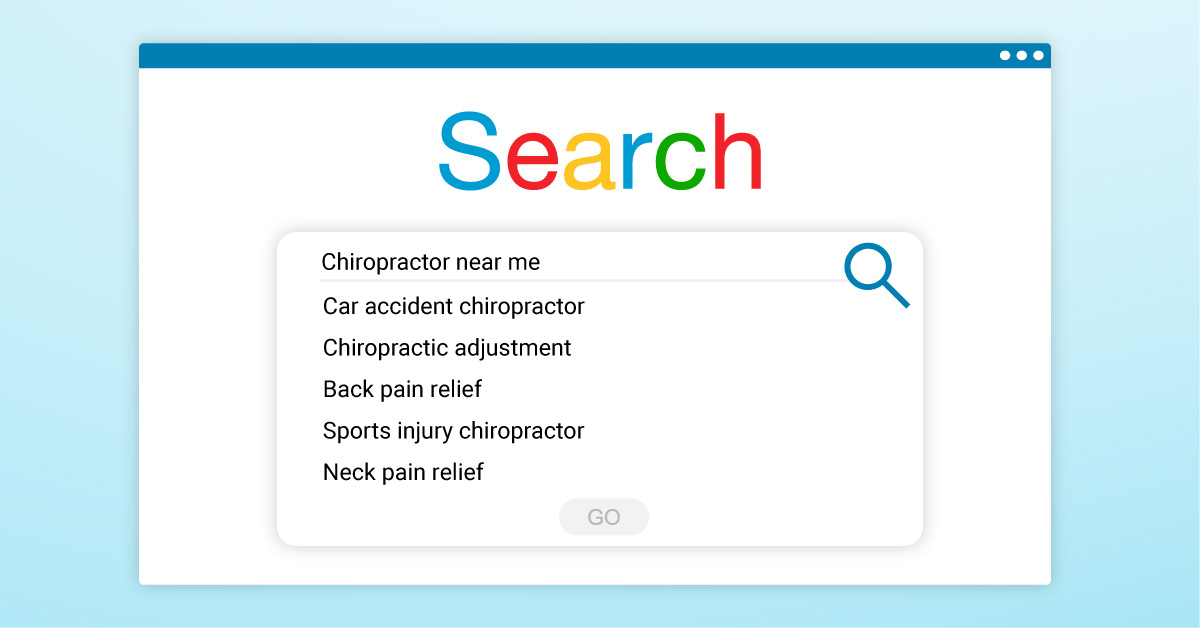How to Implement SEO on Your Website
When you input a Google search inquiry, you are instantly supplied with countless pages of information and content aimed at satisfying your search. It almost seems like magic, right? Well, we hate to burst your bubble, but it’s not magic. It’s an algorithm. But Google’s algorithm is pretty cool, too!
An algorithm is a digital formula that determines which pages populate for each search query. The algorithm’s job is to crawl millions of web pages to figure out which results will be most valuable to the user.
 Google has over 200 search engine ranking factors that help decide which pages populate at the top of their search results pages. While Google won’t tell us all of their secrets, we do know a thing or two about what they want to see from a website’s design and content.
Google has over 200 search engine ranking factors that help decide which pages populate at the top of their search results pages. While Google won’t tell us all of their secrets, we do know a thing or two about what they want to see from a website’s design and content.
Since 75% of web users don’t click past the first page of search engine results, it’s important to make sure your website gets top of the page real estate for related keywords. Want to enable more people to find your practice online? Read on to learn the top 5 ways to appeal to Google’s algorithm and rank better on search engine results pages.
Top 5 Ways to Appeal to Google’s Algorithm
1. Keywords
We know you have heard this one before, but including keywords on your site is crucial. Keywords can be placed in your content, meta descriptions, titles, tags, image alt text, and more! This means you have a lot of chances to enable search engines to find your page for related search queries.
To brainstorm keywords, first identify the topic and purpose of that web page or content. This will help you come up with some words, terms, and phrases that concisely describe the information on the page.
Once you have several ideas jotted down, take to Google to find out how web users are searching for similar topics. When you begin to type in a search query, Google will auto-populate phrases that it believes may help you find the information you’re looking for. This feature can further narrow down which are the most useful keywords for your audience.
There are many other useful tools online that can tell you how much traffic a particular keyword receives, how much competition there is for that traffic, and how many people click through those results. While some of these are free, you might want to consider investing in a program that enables you to do more detailed research.
2. Crawlable Link Structure
Internal links are links that connect one page on a domain to another on the same domain. Think about the drop-down menu on an e-commerce site. You may click on “shoes” and that link will take you to another page on the site. This is internal linking.
A search engine crawler, also known as a spider, refers to the algorithm’s ability to explore web pages. The spider reads the information on a web page and indexes the page in its library of content. This index is the reserve of information that the algorithm is able to pull from when creating search engine results page.
Your page may have an impeccable design, keyword-rich content, and useful information, but that page will never be found if it is not part of a crawlable link structure.
Make sure that your web pages are accessible through other links on the site. Pages that are only accessible through a search on the site will be missed by the search engine spider. Links locked behind a submission form will also block the crawler from finding the content on that page. Pages in Flash, Java, and other plugins are also most commonly missed by the spider.
3. User Experience
Not only does an awesome user experience impact your audience, it also tells Google’s algorithm that your site is valuable to web surfers.
Firstly, ensure that your page speed is as fast as possible. People expect web pages to load almost instantaneously, so if a page takes too long to open, they will likely navigate away before reading the great content you’ve created. This will also increase your bounce rate, or the number of times someone opens a web page then quickly clicks away from the page.
To increase page speed, reduce the number of redirects on a page, minimize your use of JavaScript, and optimize images by choosing the best file format for your content and limiting the size of the image.
User experience is also impacted by the intuitiveness of your web pages. Make it easy for your audience to find the information they need by creating easily digestible content, clean design on web pages, and an easy-to-navigate link structure.
4. Mobile-Responsiveness
A mobile-responsive webpage is no longer an option, it’s a necessity. With over 50% of all search queries being generated on a mobile device, it’s essential that your website features a mobile-friendly design.
Google’s mobile-first indexing prioritizes mobile-responsive sites over traditional desktop sites when the search is made using a mobile device. This is because your mobile-friendly site enables your audience to better navigate your page’s information, increasing the overall value of your web page.
Mobile-optimization is especially important for small businesses operating on the patronage of their community. Of all people who search for a local business on a smartphone, an amazing 50% of people visit the business that day!
Don’t miss out on new clients. Be sure to invest in a mobile-responsive website.
5. Topic Authority
You know that you’re an expert in your field, so make sure the algorithm does, too. Publishing high-quality content on a particular set of topics can help establish you as a leader in your industry and boost your search engine rankings for related keywords.
For example, if you are a veterinarian that specializes in emergency medicine, you should post informational blogs about how to spot certain diseases or issues in animals or what to do in case of an injury. You may even decide to niche down even further and become an expert in a particular disease like cancer in dogs. Then, when your audience suspects a problem with their pet, they’ll know to consult your website first.
Your chosen topics should also make frequent appearances on your practice’s social media channels. Social media allows you to engage with your audience and gauge which subjects and content types they respond best to. Plus, your social media pages can also appear on search engine results pages, meaning your practice has more visibility when web users are searching for businesses like yours.

SEO Best Practices
We know this may seem a little overwhelming, but don’t worry. Search engine optimization is a marathon, not a sprint. Don’t overwhelm yourself and your staff by trying to implement each of these strategies all at once. Instead, adopt one practice at a time and build out your complete SEO strategy.
Unsure about how to design a mobile-responsive site with indexable pages? Talk to one of our knowledgeable Internet Consultants about how you can get a site like this without the hassle of learning to code.
Ready to tackle more SEO topics?
Below are links to additional resources to help you learn how to reach your business goals.
What You Need to Know About Technical SEO
Why Content Marketing Matters
How to Navigate a SERP
PGNlbnRlcj48ZGl2IGRhdGEtaWQ9Ijk4ZGQ2MWYzOGQiIGNsYXNzPSJsaXZlY2hhdF9idXR0b24iIG9uY2xpY2s9InBhcmVudC5MQ19BUEkub3Blbl9jaGF0X3dpbmRvdyh7c291cmNlOidtaW5pbWl6ZWQnfSk7IHJldHVybiBmYWxzZSI+PGEgaHJlZj0iIyI+PGltZyBzcmM9Imh0dHBzOi8vaW1hdHJpeC5jb20vd3AtY29udGVudC91cGxvYWRzLzIwMTgvMDUvbGl2ZS1jaGF0LWJsb2ctMS5qcGciIGFsdD0iaU1hdHJpeCBMaXZlQ2hhdCIgd2lkdGg9IjgwMHB4IiBoZWlnaHQ9IjIyNXB4IiBib3JkZXI9IjAiPjwvYT48L2Rpdj48L2NlbnRlcj4=



